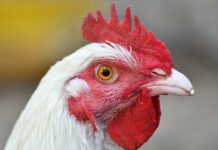SALEM, Ohio – Marking the latest turn in what’s become a revolving door of border openings and closings, the U.S. and Japanese governments agreed June 21 to resume beef trade.
U.S. Agriculture Secretary Mike Johanns said Japanese audit teams were expected in the U.S. last weekend to begin reviewing plants that meet U.S. requirements to export beef, and will wrap up their work by July 21.
At that time, beef trade is expected to resume, Johanns said.
Naysayers. Despite the agreement, and years of work by U.S. officials to jump-start commerce, trade groups and government mouthpieces are only cautiously optimistic about whether the border will actually open.
“After years of empty promises and continued delays, U.S. beef producers remain skeptical of Japan’s dependability as a trading partner,” said Terry Stokes, CEO of the a href=”http://www.beef.org”target=”_blank”>National Cattlemen’s Beef Association.
“Ranchers are tired of hearing reports from countless meetings and investigative visits between the two nations, dragging out for weeks, then months, and now years and ending with announcements of unfulfilled promises. This is not called fair trade, it’s called ‘crying wolf,'” said Mike Johns, a Missouri cattleman and president of the NCBA.
Export guidelines. U.S. beef meets or exceeds export guidelines set by the World Organization for Animal Health, which dictates beef or beef products must be from cattle 30 months of age or less.
However, Japan clutches a major trade barrier in its own 20-month-or-less age restriction that’s being called artificial and unscientific.
“Who are the Japanese officials to insinuate that U.S. beef is less than safe, when they’ve had 26 cases of BSE in a cattle herd that is roughly 3.5 percent the size of the U.S. herd? It’s just plain outrageous,” John said.
Order of events. Japan closed its border Christmas Eve 2003 after bovine spongiform encephalopathy (BSE) was found in the U.S.
Trade resumed in December 2005 with additional restrictions implemented.
In late January 2006, Japan again closed its doors to American beef after receiving a shipment containing prohibited backbone or vertebral column.
Prior to border shutdowns, Japan was the largest consumer of U.S. beef exports. The National Cattlemen’s Beef Association estimates the nation’s cattle industry has lost $6.07 billion since the border closing.
Playing fair. According to Stokes, NCBA’s executive committee voted unanimously last week to support congressional legislation to retaliate against Japan for cutting off trade.
The legislation, sponsored by Sens. Kent Conrad, D-N.D., and Pat Roberts, R-Kan., calls for additional tariffs on Japanese products imported into the U.S. if beef trade isn’t resumed by Aug. 31.
(Reporter Andrea Myers welcomes reader feedback by phone at 800-837-3419 or by e-mail at amyers@farmanddairy.com.)
Get 4 Weeks of Farm and Dairy Home Delivered









